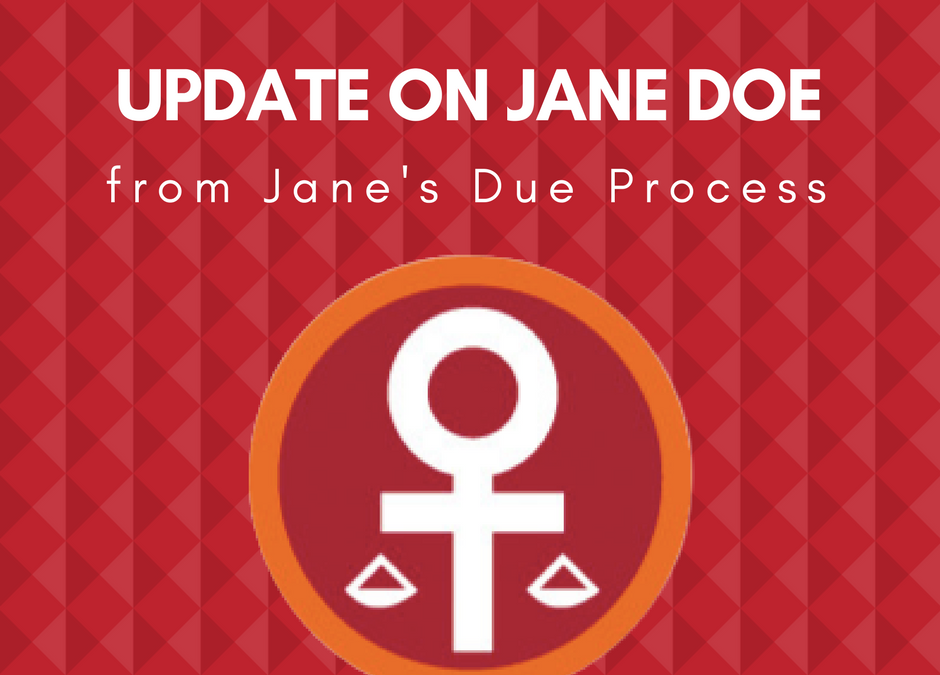NOTE: For background on the Jane Doe case, see our post from Oct. 10 & Oct. 16. For an update on the Jane Doe case, see our posts from Oct. 25 (Jane got her abortion!) & Dec. 7!
October 20, 2017
FOR IMMEDIATE RELEASE
Press Statement on DC Court of Appeals decision in Garza v. Hargan
Susan Hays, Legal Director, 214-557-4819
Tina Hester, Executive Director, 512-450-4899
_________________________________________________________________________
Federal Government Continues to Violate Jane Doe’s Legal & Human Rights
A three-judge panel of the US Court of Appeals in a three-way split decision decided to give Health and Human Services’ Office of Refugee Resettlement (ORR) until October 31 to find a sponsor for Jane, avoiding addressing the issue before them: whether the federal government holding Jane hostage and refusing to release her to obtain the abortion care to which she won the right to consent without anyone telling her parents or legal guardian causes her irreparable harm and violates her constitutional rights.
There is no guarantee that getting Jane Doe a sponsor will allow her to access an abortion in an expeditious manner. Jane Doe has been seeking abortion care for more than a month and obtained a judicial bypass order September 25. On October 31, Jane Doe will be 16 weeks and 5 days pregnant, near the time abortion is no longer legally available in the Rio Grande Valley where she is located.
“Every day she is forced to stay pregnant is an eternity for this Jane. ORR’s lawless actions have already forced her into the second trimester; had ORR followed its own policies she could have had a simple ten-minute aspiration abortion or even a medication abortion. We are shocked that the court denied Jane emergency relief,” said Susan Hays, legal director of Jane’s Due Process.
“Supreme Court precedent establishes that no one has an absolute veto over anyone’s decision to have an abortion whether in a federal detention center, an immigrant, or a minor. Punting the issue for eleven more days is a further violation of her rights by forcing her to delay her abortion and later obtain a more invasive, lengthier, more uncomfortable, and more expensive procedure,” Hays continued.
This decision is limited to Jane Doe, who also brought a class action lawsuit against ORR. “Since almost half of the 100 detention centers for unaccompanied minors are located in Texas, we expect there are scores of other young pregnant immigrant women, many sexually assaulted on their journey to the United States, that are in the same situation as this Jane Doe,” noted Tina Hester, executive director.
Jane’s Due Process has been working with the American Civil Liberties Union and court-appointed guardian ad litem, Rochelle Garza, and attorney ad litem, Christine Cortez, to help this Jane. National and local abortion funds have offered to pay for the procedure, which now costs over $1,000.
CHART: ORR’s Legal Violations and the D.C. Circuit’s Rulings’Effect on Jane’s Abortion Care
In the ten days the U.S. Court of Appeals for the D.C. Circuit is forcing her to wait the fetus will double in mass.
| Event | Weeks pregnant | Type of procedure | Time & discomfort |
| Jane’s pregnancy diagnosed | 9 | Medication abortion or
Aspiration abortion |
Two pills over two days
5-10 minute procedure |
| Jane receives judicial bypass, is blocked by ORR | 11 | Aspiration abortion | 5-10 minute procedure, some additional dilation |
| District Court grants TRO | 15 | Aspiration abortion or dilation and evacuation abortion (D&E) | 2.5 hours of dilation with pills plus a 10-15 minute procedure |
| October 31 deadline for sponsor | 16.5 | D&E | Up to 6 hours of dilation with synthetic rods inserted into cervix, 15 minute procedure |
| Additional delays (another judicial bypass if sponsor in another state, more court delays) | 20 | D&E | Two-day process with overnight dilation with synthetic rods inserted into cervix, additional dilation at clinic with pills, 15 minute procedure |
Note: Although abortion is very safe at any stage of pregnancy, each additional week of delay in the second trimester (after 14 weeks) carries with it a 38% increase in medical risks.



